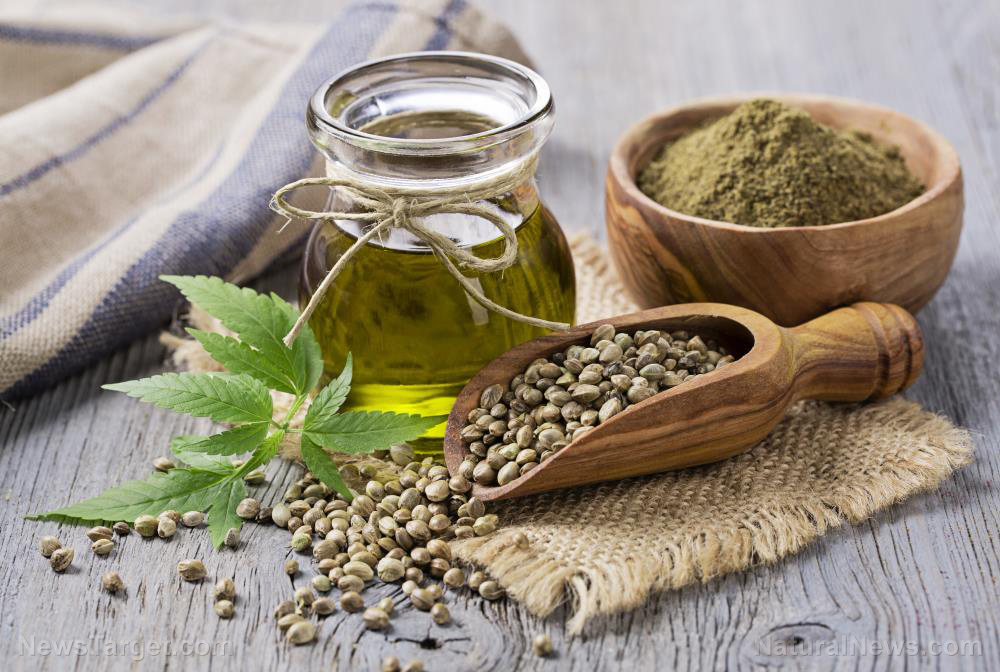5 Reasons why ashwagandha is an amazing healing herb
11/13/2018 / By Ralph Flores

Ashwagandha (Withania somnifera) is often described as the king of Ayurvedic herbs, and for good reason. This medicinal herb can provide the body with a lot of benefits. Some examples include lowering blood sugar levels, improving brain function, reducing inflammation, and even preventing anxiety and depression. Many people consider it to be an adaptogen, which a substance that helps the body effectively manage stress.
In Africa, the Middle East, and India – where Ayurveda is rooted – ashwagandha has been a part of traditional medicine for over 6,000 years. Nearly all parts of the herb are used: The leaves are used to bring down fevers, while the flowers are taken as a diuretic. The root is the most widely used part of the plant, thanks to its ability to relieve stress.
Here are just some benefits a person can get from taking the king of Ayurvedic herbs. (h/t to Blog.PaleoHacks.com)
- It soothes anxiety. A study has shown that ashwagandha has similar effects to that of anti-anxiety drugs like lorazepam — without the nasty side effects. In that study, researchers noted that the herb reduced clinical brain markers of anxiety, making it a better alternative to medication when work just keeps piling up.
- It has anti-inflammatory and antioxidant properties. People who are stressed out feel the full effects of chronic inflammation and oxidative stress. Ashwagandha protects the cell from these two by preventing free radicals from damaging the cells.
- It boosts immunity and supports the nervous system. Too much stress can translate into physical symptoms, such as extreme fatigue, colds, and even the flu. Research has shown that ashwagandha increases white blood cells counts, the body’s first line of defense against pathogenic intruders. In addition, it relaxes the nervous system and helps build new nerves.
- It helps with brain fog. People who find themselves spacing out more can use some ashwagandha. The plant improves brain function and memory — even for those with preexisting conditions and brain injury.
- It makes you more productive at work. There’s no better pick-me-up for slow days than ashwagandha. Studies have shown that it provides a stimulus similar to caffeine, which allows you to power through your day.
More on ashwagandha
It is important to consult with your healthcare provider before using ashwagandha, especially if you’re pregnant or under antidepressants (or similar medications). It’s also worth mentioning that the herb has a particularly strong smell — the word ashwagandha, after all, is Sanskrit for “smell of the horse.”
The ashwagandha plant is a small shrub with yellow flowers. It is found in North Africa and India, where its roots and leaves are heavily used. Ayurvedic medicine lists ashwagandha as one of its most important herbs. While the herb is part of the nightshade family — the same group as tomatoes, bell peppers, and eggplants, it’s sometimes referred to as Indian ginseng, thanks to its ability to rejuvenate the body.
Ashwagandha is commonly used for stress relief, but it can also be used to treat pain due to osteoarthritis. In one study, scientists found that a combination of boswellia, ashwagandha, turmeric, and zinc reduced pain and stiffness caused by osteoarthritis. The results were similar to that of valdecoxib, a nonsteroidal anti-inflammatory drug used for managing arthritis; however, the combination did not have any adverse effects on the body.
Sources include:
Submit a correction >>
Tagged Under:
alternative medicine, anti-anxiety, Antidepressant, antioxidants, Anxiety, ashwagandha, brain health, depression, stress, stress relief
This article may contain statements that reflect the opinion of the author
RECENT NEWS & ARTICLES
BrainHealthBoost.com is a fact-based public education website published by Brain Health Boost Features, LLC.
All content copyright © 2018 by Brain Health Boost Features, LLC.
Contact Us with Tips or Corrections
All trademarks, registered trademarks and servicemarks mentioned on this site are the property of their respective owners.





















